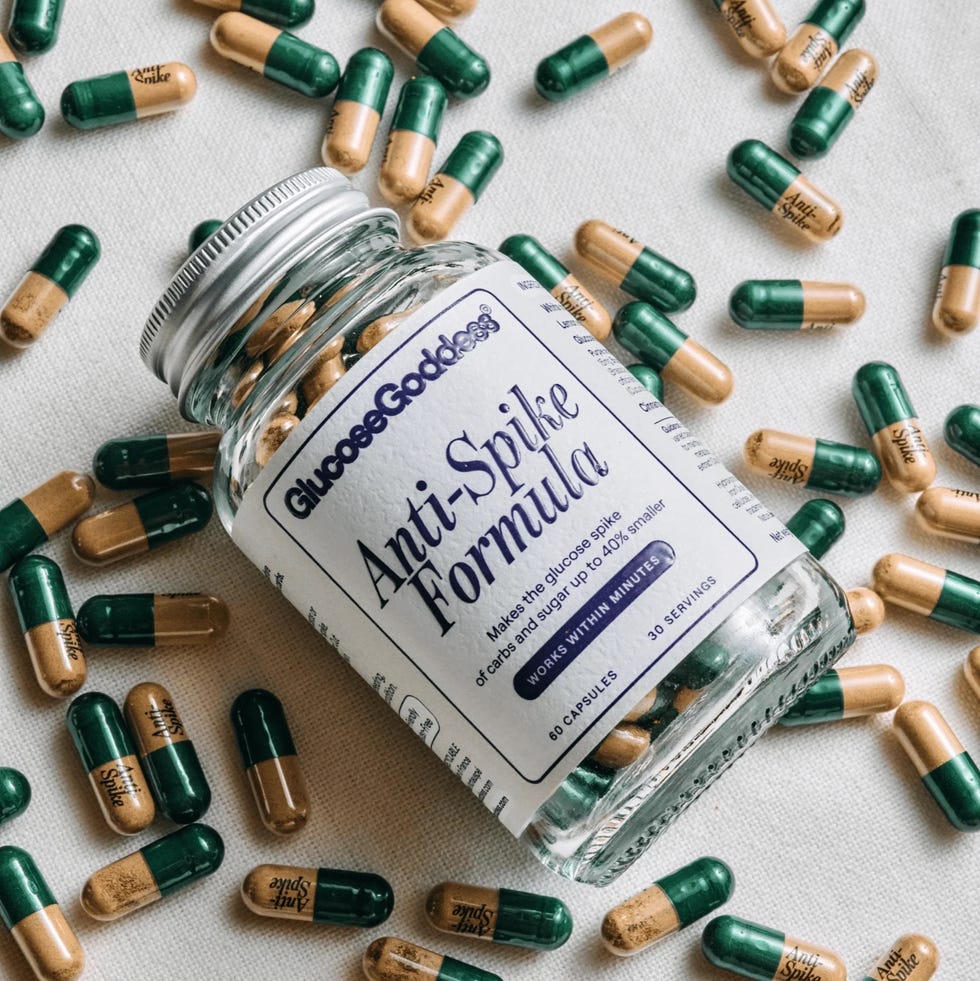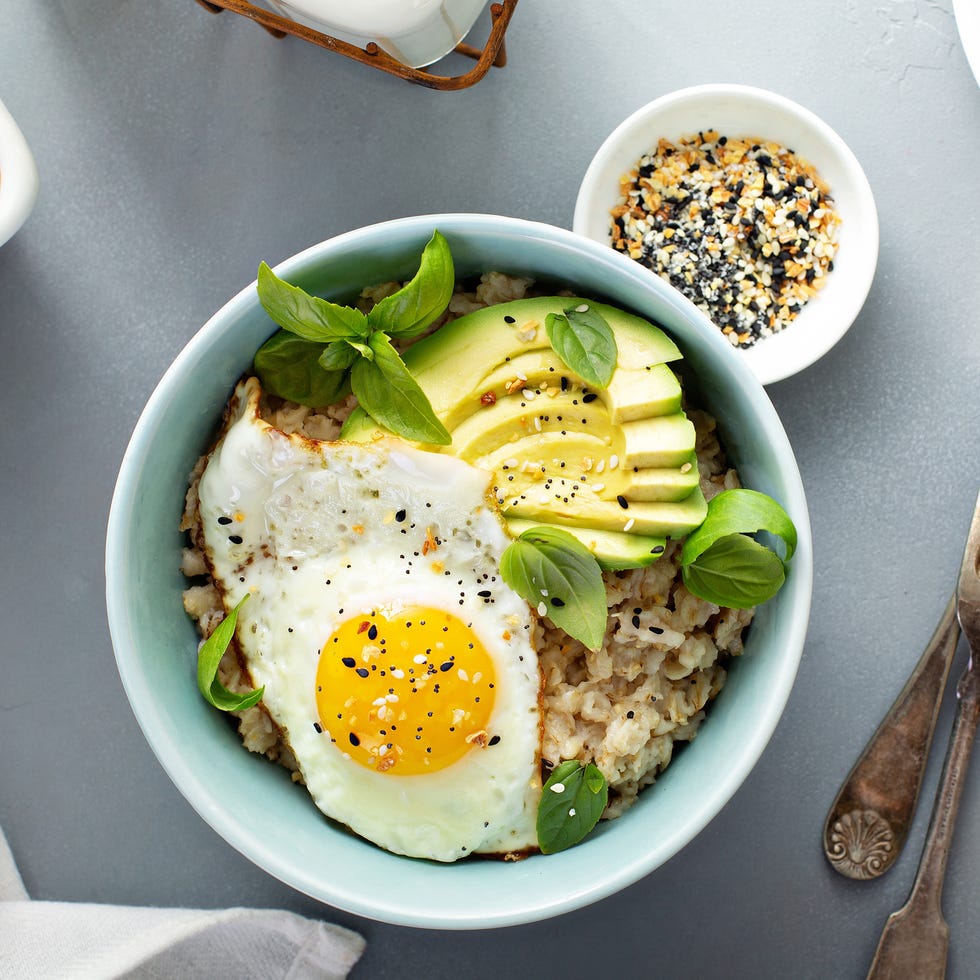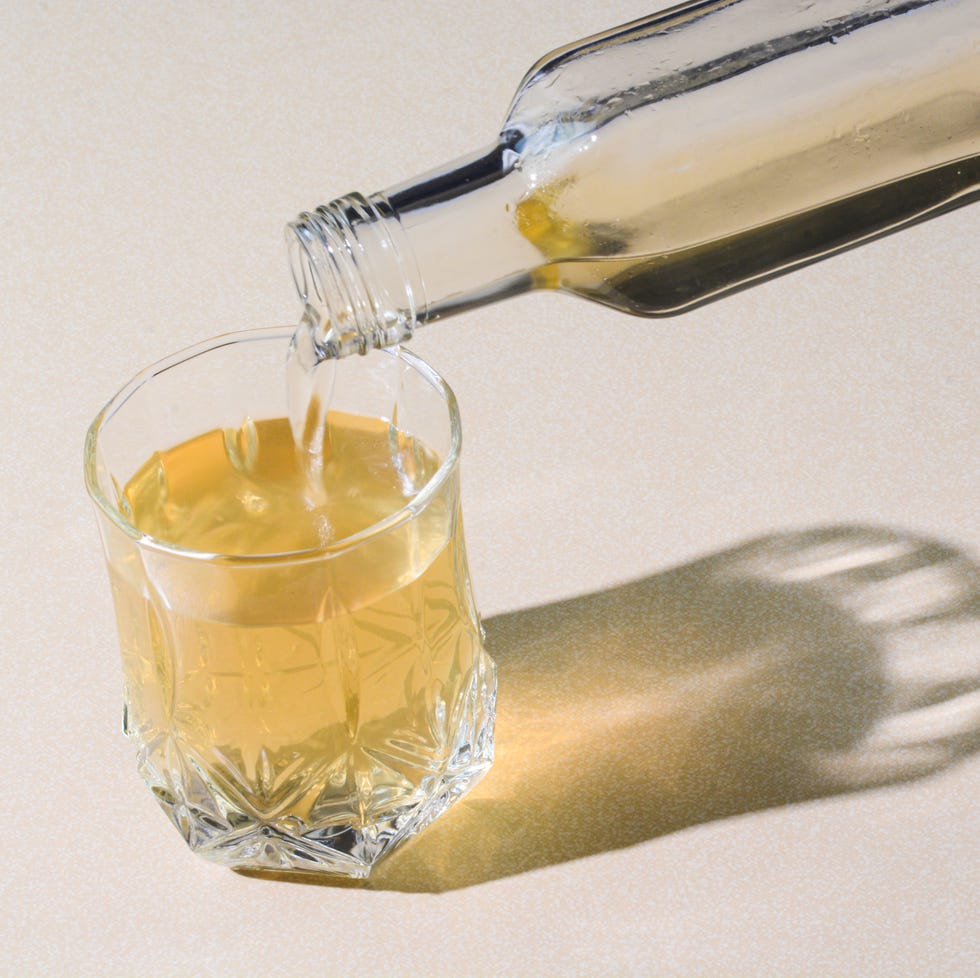Jessie Inchauspé, aka the Glucose Goddess, has become a viral sensation thanks to her simple blood sugar ‘hacks’ designed to minimise blood sugar spikes.
Her rise to fame has seamlessly coincided with our growing obsession with tracking blood sugar and glucose-monitor products, turning what was once a medical necessity into mainstream wellness culture.
While Inchauspé’s advice has earned her a cult following (5.2 million followers on Instagram, and counting) – with fans claiming that following ‘the Glucose Goddess Method’ helps them to think more clearly, have more energy and reduce cravings – it’s also sparked criticism from health professionals, who argue her claims oversimplify the complexities of blood sugar and could fuel unhealthy behaviours.
From eating foods in a specific order to drinking vinegar before meals, her so-called hacks also include eating a savoury breakfast and putting ‘clothes’ – protein, fat or fibre – on carbs. But do her hacks actually stack up?
At a time when people are increasingly putting their trust in influencers for information about health and wellness (regardless of their credentials), we decided to take a deeper look at the studies behind Inchauspé’s hacks (spoiler: many are based on small sample sizes) to decipher fact from fiction.
Here, then, is what the science says.

1. The claim: Inchauspé claims her supplement, ‘Anti-Spike Formula’, can reduce post-meal blood sugar spikes by up to 40%
The science:
A supplement claiming to reduce blood sugar spikes by 40% sounds revolutionary, but where’s the evidence? Despite being marketed as ‘clinically proven’, there are no specific studies or trials on the supplement being tested itself.
Inchauspé skirts around this by pointing to research (17 clinical studies) on the individual ingredients – for example, a study on the effect of mulberry leaf extract on glycemic traits – but even these studies are limited and not robust enough to support claims that the ingredients, in isolation, deliver such benefits. Plus, there are no trials cited showing that all these ingredients work efficiently when taken together.
The truth is, unless you’re diabetic, your body is perfectly capable of handling post-meal glucose fluctuations. So, spending £49.50 on pills that promise to fix a ‘problem’ you likely don’t have? In my opinion, it’s a waste of money.
2. The claim: Inchuaspé claims if you eat your food ‘in the right order’ you can reduce your glucose spike of that meal by 75%
The science:
Encouraging people to eat more vegetables is great – obsessing over the order in which you eat your food? Not so much.
While it’s true that fibre and protein can slow the absorption of carbs, this advice is blown out of proportion. A small systematic review of short-term studies showed that eating carbs last might slightly lower blood sugar levels, but there’s no evidence this leads to long-term health benefits. Other research showing improvements in blood sugar levels from this method were conducted on people with Type 2 Diabetes, whose glucose metabolism is already impaired.
So, yes, you might reduce glucose spikes a little by eating your broccoli before your pasta, but does it really matter? For most healthy individuals, the benefits are likely minimal. Turning mealtimes into a strategic dissection of what to eat first is a surefire way to strip all the joy from eating.

3. The claim: A sweet breakfast gives us less energy than a savoury one
The science:
If we’re comparing a bowl of Coco Pops to avocado and eggs on toast, then yes, you’ll probably be hungry in an hour. But not all sweet breakfasts are created equal.
A bowl of porridge with fruit, seeds, and nut butter is a perfectly balanced way to start your day. Plus, oats have a low glycemic index, meaning they don’t spike your blood sugar in the same way a bowl of sugary cereal would. Labelling all sweet breakfasts as ‘bad’ oversimplifies nutrition. The impact of a meal on blood sugar isn’t solely determined by how ‘sweet’ it is, it’s about pairing it with protein, fibre, and healthy fats that matters.
4. The claim: Counting calories doesn’t improve health outcomes
The science:
This one is complicated. Counting calories might work for some people in the short term, especially for understanding portion sizes or their eating patterns, and there is scientific evidence that it’s effective.
However, it’s not for everyone and obsessing over numbers can quickly suck the joy out of food. Plus, for anyone prone to disordered eating, it can do more harm than good – with recent research suggesting that tracking calories with a mobile device or application is associated with higher eating disorders.
Focusing on eating more plants, moving your body in a way that feels good and prioritising sleep is often far more effective for long-term well-being.
5. The claim: All sugar is made of glucose and fructose. They all have the same impact on our body
The science:
What Inchauspé seems to be saying here is that ‘natural sugars’ like honey and maple syrup are nutritionally similar to refined sugar. This is true, they are all made up of glucose and fructose and processed by the body in the same way. So, the best choice is the one you enjoy most.
But it’s worth noting that sugars from whole foods like fruit come with fibre, vitamins and minerals, which slow absorption and provide additional health benefits. These don’t need to be limited or feared just because they raise your glucose levels.

6. The claim: Having one tablespoon of vinegar before sweet or starchy meals can reduce the spike of your meal by up to 30%
The science:
This claim is a bit of a stretch. The studies Inchuaspé references are small – just 11 and 12 participants – and only looked at short-term effects. One focused exclusively on people with Type 2 Diabetes, while the other only tested the impact of consuming vinegar with bread. So, we can’t assume the same results would apply to healthy individuals or a variety of meals, and using these small studies to speak in absolutes is simply misleading.
While vinegar may very well slightly improve post-meal glucose spikes, the evidence isn’t strong enough to suggest carrying a bottle of apple cider vinegar everywhere is worth it. Plus, consuming too much vinegar can damage your teeth and irritate your digestive system. Enjoy it in your salad dressing? Absolutely. But downing a tablespoon before every meal? No thanks.
7. The claim: Putting ‘clothes’ on our carbs reduces the speed of glucose absorption in our body
The science:
This claim isn’t groundbreaking – it’s essentially a rebrand of long-standing advice to eat balanced meals, something healthcare professionals have been promoting for decades.
Pairing carbohydrates with protein, fibre, and healthy fats is a proven strategy for slowing digestion, keeping you fuller for longer, and regulating blood sugar levels. Lots of robust research backs this up, so the ‘clothes on carbs’ idea does hold true – it’s just good advice dressed up in new packaging.
The bottom line
Overall, blood sugar is important, but it’s just one piece of the puzzle when it comes to health. While some of Inchauspé’s tips might be useful for specific groups, for most people, mealtimes shouldn’t turn into a stressful science experiment. Above all, food is to be enjoyed – there are far more pressing concerns for health than a temporary rise in blood sugar.
Read next:
Cut through the noise and get practical, expert advice, home workouts, easy nutrition and more direct to your inbox. Sign up to the WOMEN’S HEALTH NEWSLETTER




















